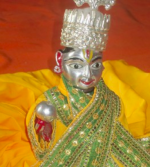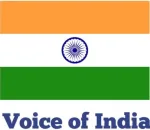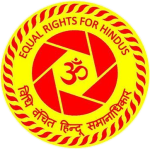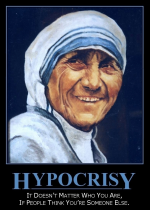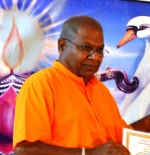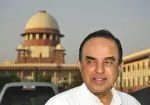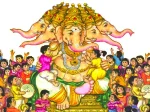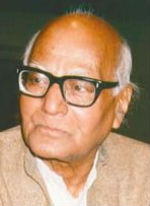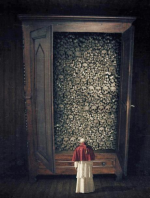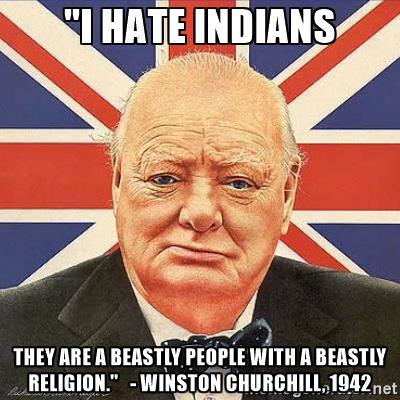 “As long as consumerism’s world view is fed to us and corporate ‘news’ organisations follow suit with sensationalist, celebrity-related infotainment formats that dovetail with the images created by the celebrity endorsed commercials and high-profile events, fewer and fewer people will recognize this controlling culture for what it is, let alone strive to challenge its hegemony.” – Colin Todhunter
“As long as consumerism’s world view is fed to us and corporate ‘news’ organisations follow suit with sensationalist, celebrity-related infotainment formats that dovetail with the images created by the celebrity endorsed commercials and high-profile events, fewer and fewer people will recognize this controlling culture for what it is, let alone strive to challenge its hegemony.” – Colin Todhunter
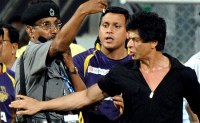 Apparently, we should ‘take care’ because we are ‘worth it.’ These are the feel-good catch phrases on English language TV channels in India that are being used to sell certain products. The commercials employ the same wording and that has been used in the West to sell these products for years. The actual news bulletins in India also bear a striking resemblance to the ‘newsworthiness’ agenda used by western channels. In many respects, as in the West, the commercials and the news are becoming virtually one and the same.
Apparently, we should ‘take care’ because we are ‘worth it.’ These are the feel-good catch phrases on English language TV channels in India that are being used to sell certain products. The commercials employ the same wording and that has been used in the West to sell these products for years. The actual news bulletins in India also bear a striking resemblance to the ‘newsworthiness’ agenda used by western channels. In many respects, as in the West, the commercials and the news are becoming virtually one and the same.
Take the various Indian channels that were running wall-to-wall coverage of Bollywood star Shah Rukh Khan’s Mumbai stadium scuffle with security guards and officials, until it was eclipsed by Zohal Hameed’s alleged ordeal of sexual abuse in relation to Australian cricketer Luke Pomersbach. Both incidents were associated with that glorified, media-hyped, money spinning cricket fest known as the Indian Premier League.
 As far as these channels are concerned, it seems that it is only the rich and affluent who really count and are ‘worth it’ in terms of news coverage. Our alleged female victim is getting an extraordinary amount of media attention. She and the cricketer in question are much more newsworthy than the 50 million plus ordinary females who have been eliminated from the population as a result of feticide, infanticide, dowry murder or just plain murder.
As far as these channels are concerned, it seems that it is only the rich and affluent who really count and are ‘worth it’ in terms of news coverage. Our alleged female victim is getting an extraordinary amount of media attention. She and the cricketer in question are much more newsworthy than the 50 million plus ordinary females who have been eliminated from the population as a result of feticide, infanticide, dowry murder or just plain murder.
Women are battered, raped and subjected to all kinds of violence in India every day. But this affluent, articulate, light-skinned US-Indian woman grabs banner headlines. Who requires real news when a sex and cricket celebrity hotel scandal will do? Each day, a mere few column inches appear in the press about a woman who has been murdered, attacked or raped. By and large, these crimes are under reported by the media.
India faces massive problems, ranging from mass poverty and female infanticide to environmental degradation. You wouldn’t know it if you watched these channels.
But this is the world we live in. Sex and celebrity are, as an ad for a deodorant product says, ‘very, very sexy.’ Who cares about the plight of a (dark-skinned) dalit woman who is raped and murdered? Who gives a damn about women being trafficked from Nepal and poor parts of India to work in city brothels?
These outrages are not outrages because they are a fact of everyday life. Too boring for headline status. Too unsettling for the middle class palate. Can’t offend their sensibilities and have them channel hopping. Just think of all that lost ad revenue.
 This white looking woman who has been dominating the news definitely fits the ratings bill. She is indeed ‘very, very sexy’ because ‘dark is out’ and ‘white is in,’ according to another ad industry sound bite. The ugly world of skin whitening is supposed to make you look more beautiful and really ‘cool.’ This racist nonsense goes unquestioned and is quite acceptable across many sections of Indian society. It’s not good enough to buy into the West’s values. You must look like white people too!
This white looking woman who has been dominating the news definitely fits the ratings bill. She is indeed ‘very, very sexy’ because ‘dark is out’ and ‘white is in,’ according to another ad industry sound bite. The ugly world of skin whitening is supposed to make you look more beautiful and really ‘cool.’ This racist nonsense goes unquestioned and is quite acceptable across many sections of Indian society. It’s not good enough to buy into the West’s values. You must look like white people too!
When satellite TV appeared on the scene in India, concern was expressed about thousands of years of Indian culture being eroded as a result of foreign channels’ output. Then came the transnationals pushing their products. In order to sell them, mindsets had to be changed. Whether it’s the ‘white is in’ phenomenon, the hedonistic ‘live life to the max’ mantra or the sexualisation of the individual, there is an ongoing attempt to dismantle the social and cultural fabric of Indian from the top down in order to fit the needs of powerful corporate players.
Individualism has increasingly become an accepted form of reality, of how we view ourselves and evaluate those around us. If you do not stand out from the crowd (or become part of the ‘cool’ crowd), you are not hip. If you don’t buy this product, wear that item or apply some skin colouring cream, you somehow don’t cut it.
Consumerism and a notion of ‘the self’ in terms of individualism, rather than the communal, fits ‘free market’ ideology. There is now a never-ending list of disposable commodities to be fetishised, individually consumed then spat out when they pass their very short sell by dates, all built on celebrity endorsements and highly ‘newsworthy,’ commercialized IPL-like events. A ‘new’ India is in the making, even in the villages where most people still live, given the increasing access to TV in rural India over the last decade.
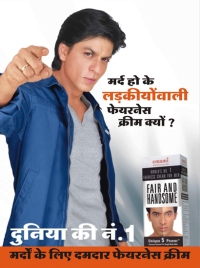 The question is, however, whose brave new India is this? Who is setting the criteria and ultimately benefits? A quick glimpse at the TV news and the commercials shows precisely who is calling the shots.
The question is, however, whose brave new India is this? Who is setting the criteria and ultimately benefits? A quick glimpse at the TV news and the commercials shows precisely who is calling the shots.
Are you really ‘worth it?’ Are you truly ‘very, very sexy?’ Do the product makers really like you so much that they really do want you to ‘take care?’ On all counts, the answer is no.
They regard you as worthless – why else would you need these products if it wasn’t to make you feel a little more worthy? And they don’t really ‘care’ about you. They just want to con you out of your cash with their temporary-feel-good, permanently-need-more products that have as much substance as the bogus science they use to hype them.
As long as consumerism’s world view is fed to us and corporate ‘news’ organisations follow suit with sensationalist, celebrity-related infotainment formats that dovetail with the images created by the celebrity endorsed commercials and high-profile events, fewer and fewer people will recognize this controlling culture for what it is, let alone strive to challenge its hegemony. – East by Northwest, 2012
» Colin Todhunter is a former social policy researcher. He has been published in the peer-reviewed journals Disability and Society and Social Research Update, and one of his articles appears in the book The A-Z of Social Research (Sage, 2003). He is also the author of Chasing Rainbows in Chennai (2003), an often light-hearted account of his early experiences in India.
Filed under: india | Tagged: capitalism, commercials, cricket, cultural relativism, dowry murder, economics, globalisation, health, human rights, india, indoctrination, infanticide, IPL, lifestyle, luke pomersbach, media, pop culture, poverty, psychological warfare, secularism, sex, sexy, shah rukh khan, skin whitener, tv, zohal hameed | Leave a comment »


